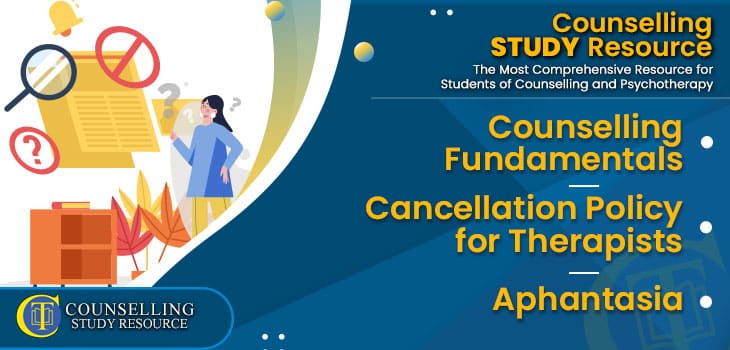See Counselling Skills Used in Real Sessions by Qualified Therapist
Real Sessions – Real Presentations – Real Skills
Gain the competence and confidence to use counselling techniques effectively!

In Episode 281 of the Counselling Tutor Podcast, your hosts Rory Lees-Oakes and Ken Kelly take us through this week’s three topics:
Counselling Fundamentals
Whether you’re a student or an experienced practitioner, remembering and revisiting your counselling fundamentals can be a huge help to you in your practice. In this section, Rory and Ken go over these fundamentals and their importance:

Real Sessions – Real Presentations – Real Skills
Gain the competence and confidence to use counselling techniques effectively!
When it comes to running your own private practice, it’s important that you’re treating it as what it is – a business. In this section, Rory and Ken discuss the importance of factoring cancellations and no-shows into your policy and client contracts:

On-demand access to a rich lecture library covering theory, skills, and professional development for counselling students—Mapped to the UK awarding body criteria
“The Student Library has been BRILLIANT, I can’t recommend it enough!
It has been a lifeline in helping me prepare for practice and my first clients. If you’re considering it, go-for-it, it’s absolutely worth it!”
Kelly – Graduated and now in practice.
In this week’s ‘Practice Matters’, Rory speaks with Sassy Smith about Aphantasia, and some things to consider if you’re counselling a client with aphantasia.
The key points of this discussion include:
Counselling Fundamentals

Get on-demand Certified CPD that is implementable in your practice
